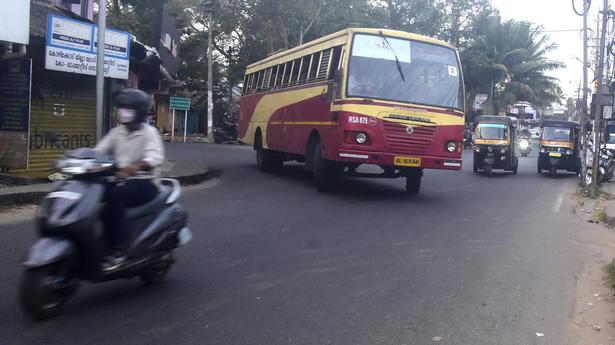North Korea fired a ballistic missile towards the sea off its east coast on September 25, ahead of planned military drills by South Korean and U.S. forces involving an aircraft carrier and a visit to the region by U.S. Vice President Kamala Harris.
South Korea’s military said it was a single, short-range ballistic missile fired from near the Taechon area of North Pyongyan Province just before 7.00 a.m.
Japan’s Defence Minister Yasukazu Hamada said Japan estimated it reached maximum altitude at 50 km and may have flown on an irregular trajectory. Hamada said it fell outside Japan’s exclusive economic zone and there were no reports of problems with shipping or air traffic.
The launch comes after the arrival of the nuclear-powered American aircraft carrier USS Ronald Reagan in South Korea to participate in joint drills with South Korean forces, and ahead of a planned visit to Seoul this week by Harris.
It was the first time the North carried out such a launch after firing eight short-range ballistic missiles in one day in early June, which led the United States to call for more sanctions for violating U.N. Security Council resolutions.
North Korea rejects U.N. resolutions as an infringement of its sovereign right to self defence and space exploration, and has criticized previous joint drills by the United States and South Korea as proof of their hostile policies.
The drills have also been criticised by Russia and China, which have called on all sides not to take steps that raise tensions in the region, and have called for an easing of sanctions.
After North Korea conducted an unprecedented number of missile tests earlier this year, including its intercontinental ballistic missiles for the first time since 2017, the United States and South Korea said they would boost joint drills and military displays of power to deter Pyongyang.
“Defense exercises are not going to prevent North Korean missile tests,” said Leif-Eric Easley, an international affairs professor at Ewha University in Seoul.
But U.S.-South Korea security cooperation helps to deter a North Korean attack and counter Pyongyang’s coercion, and the allies should not let provocations stop them from conducting military training and exchanges needed to maintain the alliance, he added.
South Korea’s Yonhap news agency reported on Saturday North Korea may also be preparing to test a submarine-launched ballistic missile (SLBM), citing the South’s military.






